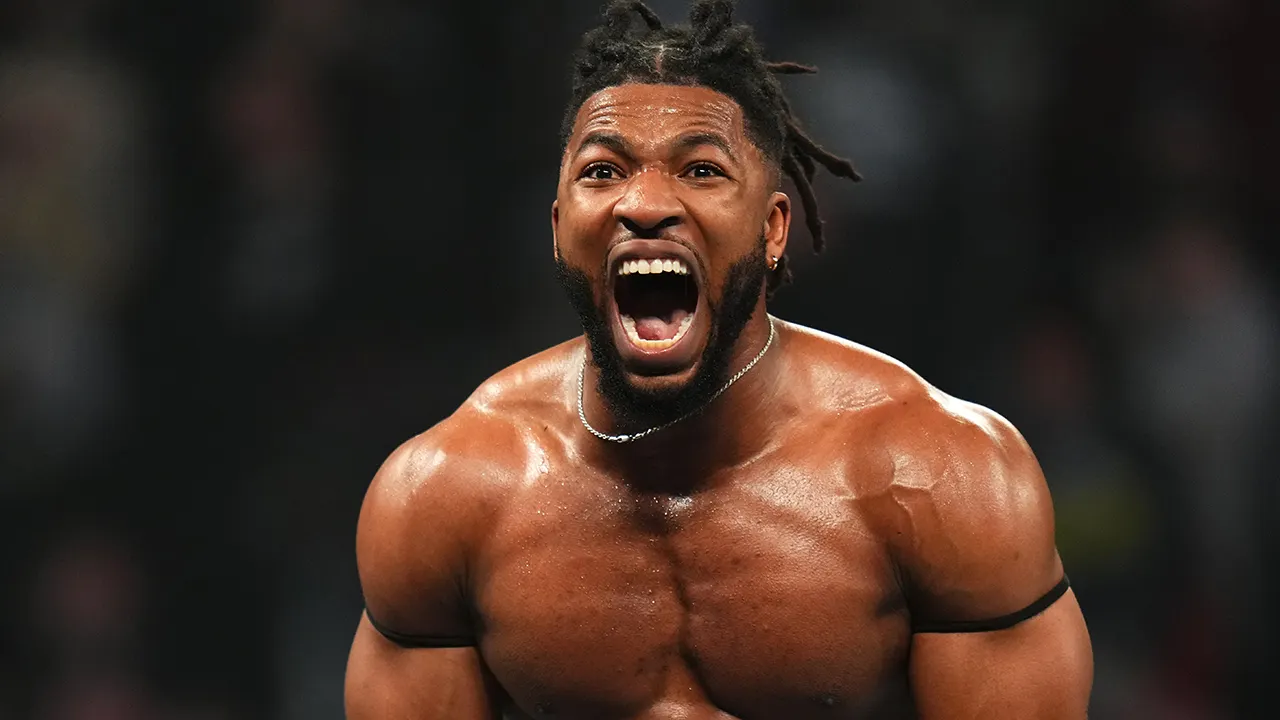Penguins retire Jaromir Jagr’s iconic No. 68

There were jokes. And laughter. And catharsis.
Just no tears. At least none from Jaromir Jagr. Maybe because they were unnecessary when the Pittsburgh Penguins retired his iconic No. 68 on Sunday.
The look on Jagr’s face, the subtle catch in his voice, the smile that remains boyish even at 52 said it all.
The final salute from <a href=”https://twitter.com/68Jagr?ref_src=twsrc%5Etfw”>@68Jagr</a> 🫡 <a href=”https://t.co/T8JQvDsQaz”>pic.twitter.com/T8JQvDsQaz</a>
—@penguins
No matter where the NHL’s second all-time leading scorer has gone during a professional odyssey that’s spanned 30-plus years and three continents, Jagr has long understood where his hockey home is: the place where he arrived in 1990 as a teenager from eastern Europe shrouded in mystery, armed with a mullet that became his trademark and the kind of prodigious talent that eventually made him one of the game’s all-time greats.
“You ask anybody in the world, Czech, Europe and you say `Jaromir Jagr’ they’re going to say Pittsburgh Penguins,” Jagr said before a 40-minute on-ice ceremony that ended with his jersey being raised to the rafters at PPG Paints Arena alongside mentor and Hall of Famer Mario Lemieux’s No. 66 and Michel Brière’s No. 21.
Surrounded by his mother and former Penguins executives and players — Lemieux included — Jagr never broke down as he feared he might. Instead, the franchise’s fourth all-time leading scorer let his 10-minute speech serve as the exclamation point on a weekend in which he reconnected with the city to which he is forever linked.
“The 11 years I was here was amazing,” Jagr said. “Probably the best years of my life. So thank you for that.”
Jagr’s journey from Kladno, Czech Republic — where he still plays for the team he owns even as he drifts toward his mid-50s — for a celebration that seemed remote at times was years in the making.
Typically not one for sentiment, Jagr made it a point to drink it all in. He swapped stories with former teammates during an event on Friday. He practiced with the current Penguins on Saturday — pointing out, “I was pretty good let me tell you” — before spending Saturday night alongside Lemieux, Jagr’s idol-turned-running mate while leading the club to a pair of Stanley Cup titles in 1991 and 1992.
Jagr left the Penguins in 2001 when the then-financially stressed club sent him to rival Washington. He had a chance to return in the summer of 2011 only to sign with rival Philadelphia, a decision that had nothing to do with not loving the Penguins and everything to do with his belief that he could still play at a high level against the best, an opportunity unlikely to happen in Pittsburgh, which was loaded at the time up the middle with stars Sidney Crosby and Evgeni Malkin in their 20s.
Unwilling to accept a role on the third or fourth line, Jagr joined the Flyers instead, an act of betrayal to a fan base that once idolized him and led to him being booed nearly every time he returned as he bounced from team to team during the latter stages of his career.
It was weird, yes. Uncomfortable (if understandable) too at times for a player whose name is written on the Stanley Cup under the name “Pittsburgh Penguins” twice.
“I wouldn’t say I was selfish but I was thinking about myself,” Jagr said. “Maybe it was a mistake, I don’t know. Maybe if I come here the celebration would be bigger.”
Jagr: “To be here with you, hearing the cheers – I don’t even have to score, that’s beautiful. That never gets old. I’m honored.”<a href=”https://twitter.com/68Jagr?ref_src=twsrc%5Etfw”>@68Jagr</a> speaks to his fans ⬇️ <a href=”https://t.co/FqJQmJx7RC”>pic.twitter.com/FqJQmJx7RC</a>
—@penguins
Whatever wounds there were, however, have healed. The proof came not just during a rolling standing ovation when Jagr — wearing a dark suit and brown shoes — was introduced but in the way he was embraced at every turn by a franchise that was teetering when he left, one that has now become synonymous with excellence.
“When you look at the history of hockey, he’s somebody that you’re always going to think about,” Crosby, a three-time Stanley Cup winner himself, said. “The fact that he played here and had the impact that he did here, what he was able to accomplish over his career, it’s incredible. And I think we all feel pretty fortunate to be part of this.”
There was one skater on the ice, however, who was mullet-less: Jagr himself. Save for the salt-and-pepper stubble on his cheeks, for a few minutes it was hard to tell if it was 2024 or 1994. The sellout crowd — many of them sporting various iterations of Jagr jerseys (Penguin or otherwise) and a few even donning white Jofa-brand hockey helmets — roared when he emerged from the tunnel.
It grew even louder minutes later when Jagr took one solo lap before exiting into the darkness, a trip back to Kladno in the offing.
There is a game to be played later this week. Greatness — in whatever form he can find it at 52 — to chase.
“Once you’re satisfied, I think it’s over,” he said. “Maybe I’m not going to get better but I want to think I’m getting better.”


